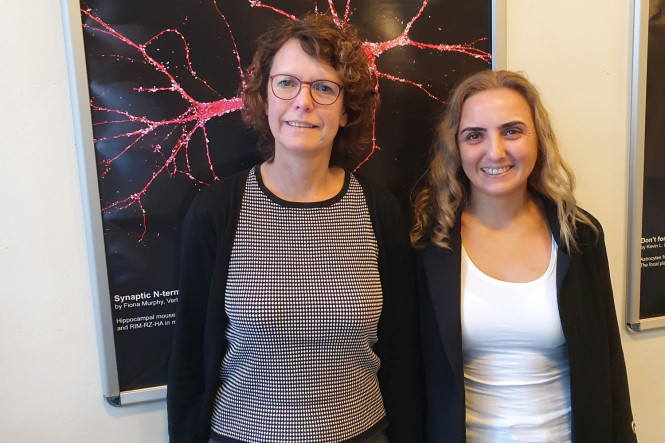In this multidisciplinary project ubiquitin signaling expert Aysegul Sapmaz in the department of Cell and Chemical biology teams up with Wiep Scheper -PI of the Molecular Neurodegeneration group.
The great majority of neurodegenerative dementias including Alzheimer’s disease and about one-third of frontotemporal dementias are “tauopathies”, that share the misfolding and aggregation of tau protein as a common hallmark. Whereas tau pathology is closely connected to neurodegeneration, the mechanism underlying tau-induced neurodegeneration is unknown. A striking effect of tau pathology is the disruption of the compartments of the highly connected auto- and endo-lysosomal pathways. In healthy cells, protein sorting and trafficking in the lysosomal system is specifically and dynamically regulated by de-ubiquitinating enzymes (DUBs) that provide a regulatory switch by modulation of ubiquitin signals.
This project aims to determine the effects of tau pathology on the neuronal ubiquitin landscape and DUB-mediated signaling. The combination of the unique ubiquitin chemical biology tools and expertise of the Sapmaz lab and the advanced neuronal disease models and molecular cell biological toolbox of the Scheper lab provides an innovative approach to contribute to a solution for tau-mediated dementia.
